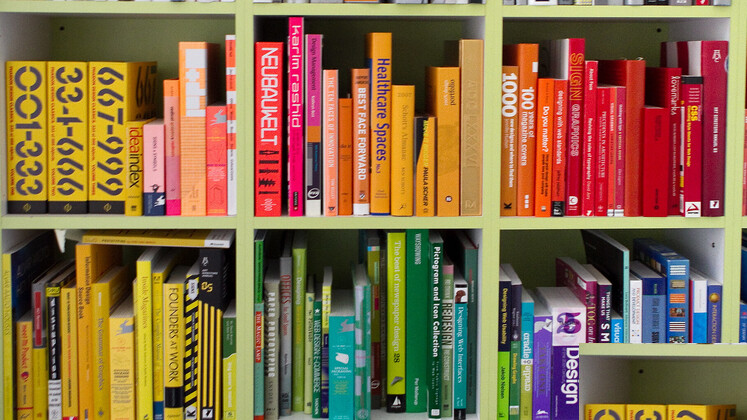Much academic research is currently characterised by a rush to capture the effects of COVID-19. However, impact in the social sciences depends on researchers taking the time to look after themselves, exchange knowledge with others – within and across disciplines- and reflect on new data alongside existing knowledge. Tina Haux, author of Dimensions of Impact in the Social Sciences, considers whether the speed at which knowledge generation is being sought could bring risks for the feasibility and quality of social science research.
This is post was part of a six-week series: Rapid or Rushed? exploring rapid response publishing in covid times. Read the rest of the series here.
Having studied the impact of social sciences as documented for the Research Excellence Framework 2014 in Dimensions of Impact in the Social Sciences, I was impressed by the diversity and influence of the impact case studies. Among other things, academics had worked closely with UK and other governments to reduce conflict, ensure fairer benefit payments, developed measures to detect large scale fraud, created protocols for the storage of very personal data and developed trauma interventions for children. I could give many more examples of impact that made me feel proud to be an academic.
Achieving Impact: playing the long game
Reading through over 120 impact case studies from Sociology, Social Policy, Politics, International Relations, Criminology and Social Work, I noticed a few other things. Whilst there were some differences: in terms of the balance of gender, the proportion of lone scholar versus team submissions and institutional support, for example, there was also a common theme: research impact takes time.
I found that many academics had engaged with the policymaking community over decades, long before the inclusion of impact in the REF. Moreover, this engagement was not based on having carried out particular pieces of research but based on their expertise more broadly – the ability to marshal and evaluate existing knowledge (and its limit) in their field. This sentiment was echoed by Social Policy academics I interviewed. In the addition to their clear sense of being part of a community of scholars, they gave many examples of mentoring, both received and given, including learning the craft of engagement and impact, but also constant cross-referencing and appreciation of the work of their fellow academics. As mentioned by many, the focus on impact as constructed by the REF encourages a focus on individual achievements at the expense of epistemological communities.
Concerns about the rush to research COVID-19
And so, the current rush to research the effect of COVID-19 is leaving me uncomfortable. Of course, it is important to capture the effects of the crisis and much of it is already being used to press policymakers for better provisions for key groups. See the work by CPAG on the impact of COVID-19 on families, the report by the IFS on inequalities and home–schooling or the work by the Resolution Foundation on the effect of COVID-19 on different segments of the labour market. Yet the following concerns remain:
1.Harmful for participants?
I am not sure that in the rush to capture the moment, we are taking sufficient time to incorporate the ethical standards of our disciplines. First and foremost, research should do no harm. As we research the effects of the crisis, it is important to remember that this is a crisis that is likely to affect individuals on numerous levels, be it worries about their own physical and mental health, the well-being of their loved ones young and old, their job security, the collapse of so many plans for this year and a very uncertain future. And all of this while possibly trying to work and home-school at the same time, living perhaps under lockdown or in cramped and unsafe conditions. I myself have had several times during the crisis when I would have been left feeling upset by the usual interview questions and my circumstances are very protected. Therefore, we need to be careful about what we ask of respondents in times of an ongoing crisis.
And I am feeling uncomfortable because I would not be surprised if the gender imbalances that are starting to appear in journal submissions and that are a clear feature of this crisis are likely to be replicated in our work, too
2.Is this collectively our best effort?
I am not sure the rush has allowed us to reflect on the existing knowledge from previous crisis, to work across disciplinary divides and ensure that any research will be able to tell us not just about this crisis as it unfolds now, but also its long term effects and, therefore, how we need to set up the research that we are doing now to capture those, and those of future crises that are sure to come our way.
One way to achieve this is to make the best possible use of existing data collection. A number of large–scale surveys are currently in the field and some are inviting researchers to submit additional questions. Another way is to be generous in our collaborations with colleagues, even after we have received funding to ensure that the research is of the highest possible standard, e.g. by making data available, by sharing questionnaires and other useful research. I remember reviewing the research commissioned on lone parents by the New Labour administrations and concluded that around a quarter of all lone parents must have been interviewed as part of the research programme and, yet, the gain in knowledge was limited due to treating each study as a new dawn.
Conversations about the future shape of society take time
So, in these unprecedented times, let us do the best research we can, which may not be rushing to set up another study but working with colleagues across the disciplines to establish what we can learn from previous crises, health and otherwise. A good start has been made by a reading list to contextualise the crisis. Finally, in all the excitement to capture the crisis, let’s also (or instead) set time aside to be involved in the conversations about the future shape of society based on our existing knowledge.
This is an edited version of an article that originally appeared on Transforming Society
Note: This article gives the views of the authors, and not the position of the LSE Impact Blog, nor of the London School of Economics. Please review our comments policy if you have any concerns on posting a comment below
Image credit: gerult via pixabay









I think some work produced during the crisis has indeed contextualised covid very well, without ‘setting up studies’. My favourites are the two long OA articles produced by Jude Fernando on the ‘virocene’, which have no interview or survey data, but glean lessons from historical epochs and the political economy of inequality, that preceded the pandemic and which the latter has magnified. https://doi.org/10.2458/v27i1.23748 DOI: https://doi.org/10.2458/v27i1.23816 Similar argumentation is found in the work of Reg Cline Cole, writing in ROAPE https://doi.org/10.1080/03056244.2020.1814627. The late Phil O’Keefe who died this month [https://en.wikipedia.org/wiki/Phil_O%27Keefe ] published a short intervention with his son on covid in the UK, and its mismanagement worsening the plight of the working class. https://doi.org/10.1177/1942778620937413
A quick note to say thanks for posting this. At the risk of being guilty of “physics envy”, it seems there has been a lot more critical reflection on the risks of rushing to research in COVID-19 work in other scientific fields (for fairly obvious reasons given their direct role). As you say, there is definitely good work being done, but hopefully we can continue to learn in this area, particularly given that the pandemic and public response has highlighted the need not just for good quality research but the difficulties in ensuring this is communicated clearly.
Looking forward to reading the other articles in this series…